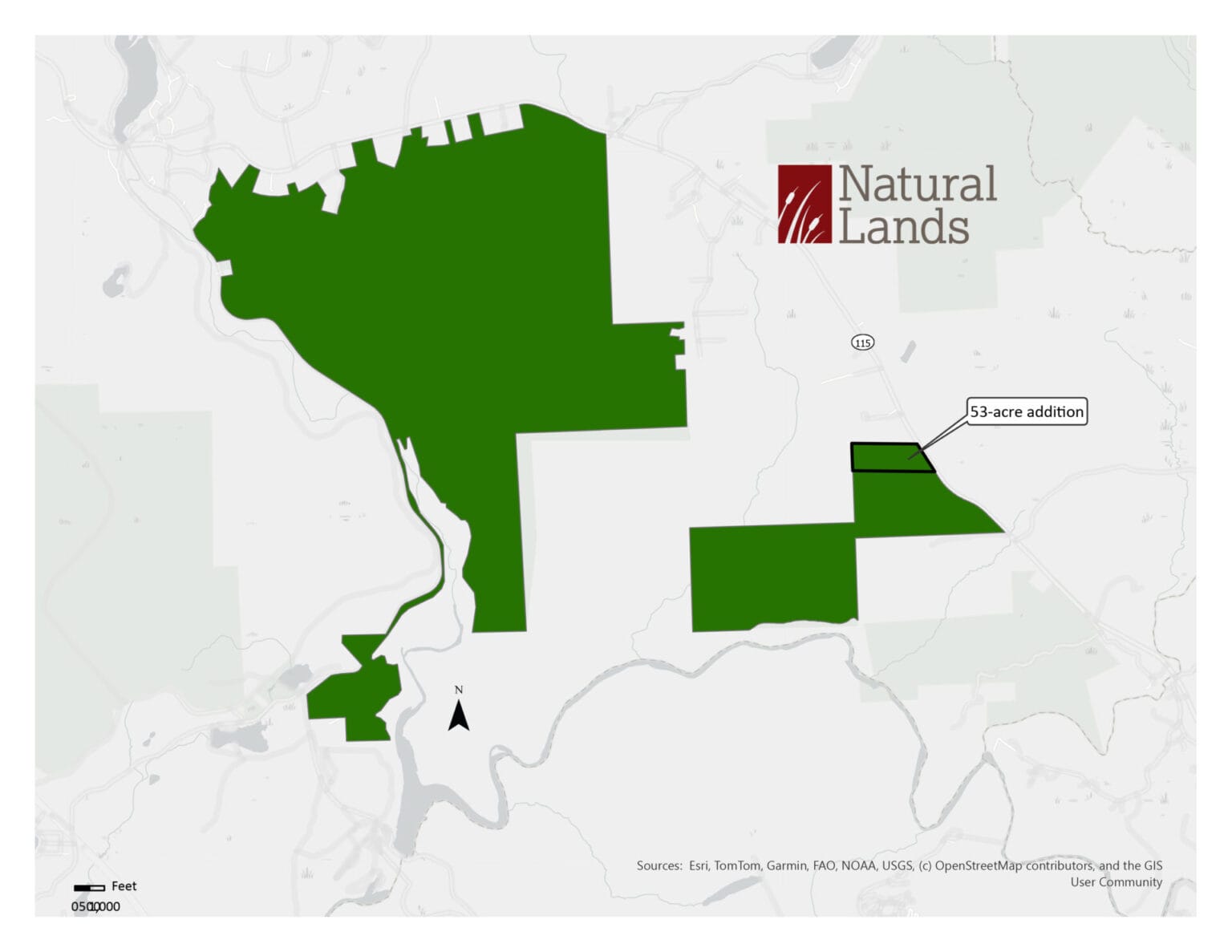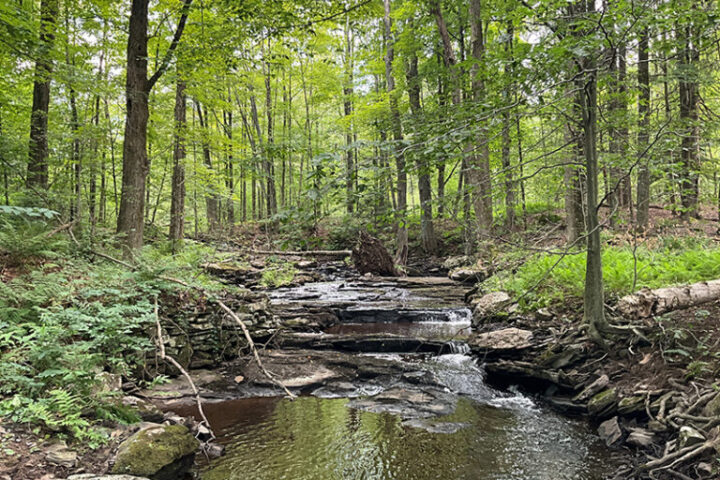Press release by Natural Lands on 4 August 2025

Natural Lands’ Bear Creek Preserve in Buck Township, Luzerne County, PA.
On August 4, Natural Lands announced the addition of a 53-acre property to its Bear Creek Preserve in Buck Township, Luzerne County. The forested land, located immediately adjacent to the now 3,986-acre nature preserve, will be managed for ecological health, species diversity, and public recreation. Bear Creek Preserve is open to the public, free of charge, from dawn to dusk every day except Mondays.
“For generations, this property has been maintained as woodlands,” said John Brislin, representing the Corgan family. “Selling the property to Natural Lands to become part of Bear Creek Preserve was an easy decision as a way to help preserve the Lehigh Valley watershed and to make this land available to people to enjoy for generations to come.”
Bear Creek Preserve, one of more than 40 nature preserves in Natural Lands’ care, is part of a vast mosaic of protected lands including state game lands, Bureau of Forestry property, and private conservation easements. As part of Bear Creek Preserve, this once-vulnerable property will never be developed.
“Bear Creek Preserve is part of a larger landscape of protected open space, including state parks and game lands, that spans more than 150,000 acres,” said Jack Stefferud, Natural Lands’ senior advisor for land protection. “Seventy percent of Pennsylvania’s forests are privately owned, which means they are vulnerable to development. We are grateful to the Corgan family for choosing to preserve their land by selling it to Natural Lands.”
More than half of the newly acquired property falls within the “Dry Land Hill Pools,” a special designation determined by the Pennsylvania Natural Heritage Program. The large vernal pools—which appear in spring but dry up as the weather warms—are set within an oak-dominated forest, an area usually quite dry.
The area is home to two “species of concern”: the few-seeded sedge (Carex oligosperma) and the Bog Copper butterfly (Lycaena epixante), the latter of which uses cranberry as its larval host plant. Wetlands, including ephemeral pools, serve as nature’s living water filters. Water moving downstream slows as it passes through wetlands, allowing time for it to be reabsorbed into the ground. Plants growing in the wetlands break down contaminants, filter out sediment, and store excess nutrients like carbon dioxide. Insects, plants, and animals—including people—benefit from the water cleaning services that wetlands provide, free of charge.
These boggy habitats are home to more plants, bugs, birds, frogs, fish, and invertebrates than any other habitat on Earth. More than half the plants and animals in Pennsylvania rely on wetlands for food and reproduction. Yet, in the past 200 years, more than half of all the wetlands in Pennsylvania have been lost to development.
The Allerton Foundation provided support for this project.

About Natural Lands
Natural Lands is dedicated to preserving and nurturing nature’s wonders while creating opportunities for joy and discovery in the outdoors for everyone. As the Greater Philadelphia region’s oldest and largest land conservation organization, Natural Lands—which is member supported—has preserved more than 136,600 acres, including 40+ nature preserves and one public garden totaling more than 23,600 acres. About five million people live within five miles of land under the organization’s protection.
Media Inquiries:
Kit Werner, Senior Director of Communications
610-353-5587 ext. 267
kwerner@natlands.org




